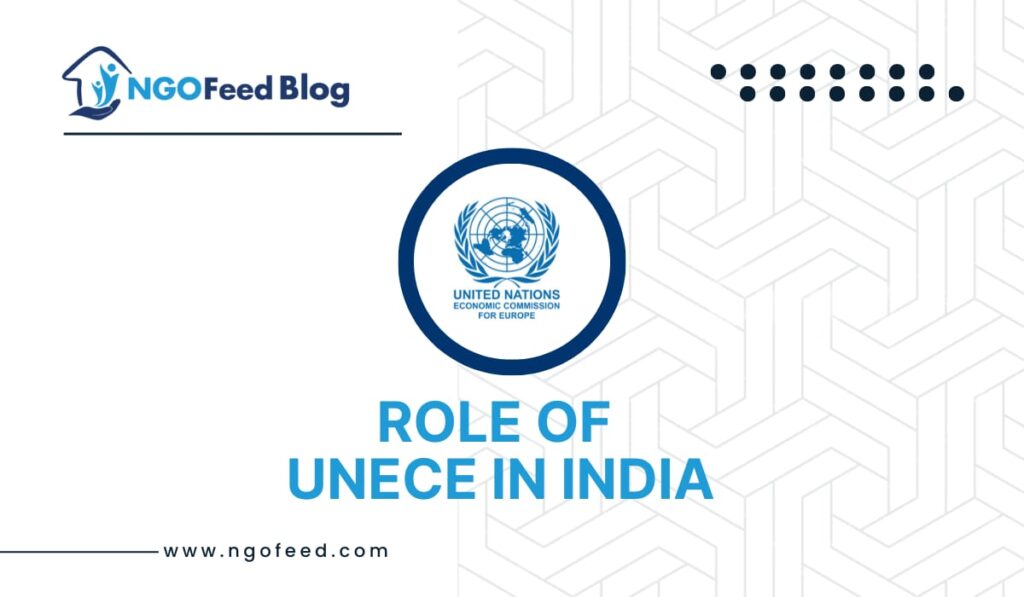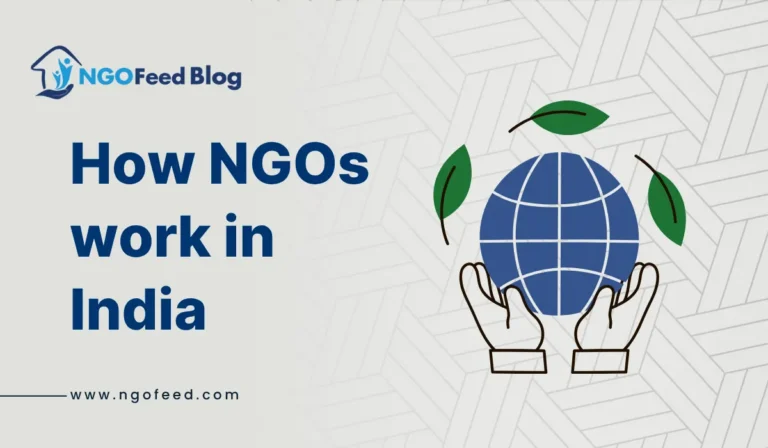Role of UNECE in India: The full form of UNECE is The United Nations Economic Commission for Europe. The United Nations Economic Commission for Europe UNECE was established in 1947 to promote economic cooperation, development, and integration among its member nations. UNECE is concerned with the Europe region but its work has a global influence in trade, transport, and sustainable development even reaching such a country as India. UNECE conventions, norms, and regulations have been crucial for simplifying trade relations and harmonization, setting intelligent road traffic rules and their enforcement, and promoting sustainable practices that fit into India’s development path.
For instance, India being an emerging economic superpower gets value for money through activities such as industrial facility modifications and upgrades that aim at, the standardization of technical regulations as well as policies for trade, transport, energy efficiency, and environment. Information and agreements on vehicle security alongside the dedicated TIR convention for improving transit systems give India solid opportunities to boost its opportunities and global competitiveness through UNECE conventions. This is one of the surest signs that probably global issues cannot be solved by individual countries without their working in conjunction to come up with solutions.
This article explores how and what UNECE has done to ensure that India is on the right path to achieving sustainable economic development in the region regarding trade liberalization, infrastructure, and environment.
Also Read: Role of WFP in India
Understanding UNECE and its importance in India
What is UNECE?
The United Nations Economic Commission for Europe (UNECE) is among the five commissions of the United Nations that were opened in 1947. Its main aim is the integration and liberalization of world market access through the support of the economic cooperation policies of member nations, mainly from Europe, toward sustainability development, trade liberalization, and environmental conservation. UNECE works in numerous fields: transport, trade, energy, environment, and statistics, but its main task is the establishment and coordination of international standards and agreements.
As a policy dialogue-enabling organization and the think tank of its member states and partners, UNECE contributes to translating international policy framework commitments, including the United Nations Sustainable Development Goals (UN SDGs), into country-level operational policies and practices. UNECE’s frameworks and recommendations guarantee effective trade, better links, and sustainable industries across the globe.
Relevance of UNECE to India
Even though UNECE mainly operates in the European region it still assists other parts of the world for instance India through its conventions and standards. At the regional and international level, UNECE helps India to identify and integrate the best practices in trade and transport, to follow the global environmental agenda, and to benefit from energy efficiency measures. Steps like the TIR Convention proved beneficial for India and helped to enhance cross-border trade by cutting out the expenses and time that used to be wasted.
Moreover, through its efforts in the field of vehicle safety, air quality, and renewable energy technologies UNECE has been a useful partner in furthering India’s goal of a green growth path, thus the partnership has become more important for India’s development model.
Also Read: Role of UNAIDS in India
What is the role of UNECE in India?
UNECE, as an indirect but influential, actor, has been in the background for India’s economic development policies, environmental conservation measures, and globalization strategies. UNECE’s main emphasis is put on Europe whereas its conventions, standards, and frames serve a global purpose and can provide a pretty beneficial experience to countries such as India.
Key Roles of UNECE in India
Trade Facilitation:
UNECE works towards trade standards to ease the conduct of Foreign trade for India. India has made most of the transit measures through its conventions such as the TIR Convention, and has improved its transit functions for trade with Central Asia Europe, and other markets.
Transport and Connectivity:
B: Working with UN ECE facilitates the achievement of vehicle regulation and transport protocols in India enhancing road safety, strength of transport webs, and compliance with global standards hence improving infrastructure and connectivity in the country.
Environmental Sustainability:
UNECE frameworks help India to address such issues as air pollution, the management of sustainable resources, energy efficiency, etc. Its principles on renewable energy and clean technologies further this country’s climate action plans.
Policy Alignment with Global Standards:
In this context, it is here pertinent to state that by abiding by the norms of UNECE, India can claim its policies observe the best internationally recognized practice in adoption with major demands for competitiveness and sustainable development across sectors.
Thus, the structures of UNECE thereby help India in its mission to realize economic & sustainable development goals at the global forum.
Also Read: Role of UNODC in India
How does UNECE impact India’s Development Goals?
UNECE plays a pivotal role in helping India achieve many of its developmental objectives since the organization offers India internationally accredited templates, guidelines, and conventions in line with India`s policy agenda in trade, growth, sustainable development, and infrastructure.
1. : Trade Facilitation and economic development
Global traditions like the TIR convention from UNECE help to eliminate trade barriers where smooth customs and transit enhance the ability of India’s global trade positioning. This straightly helps India’s twin goals of raising exports and establishing links with the global economy.
2. Sustainable Infrastructure and Connectivity disabilities of health and as assets of health.
UNECE transport standards and procedures help India to enhance road safety and build safe efficient transport systems. India in fact improves public safety and emissions compliance by adopting these standards of UNECE hence helping in enhancing the sustainable development goals (SDGs).
3. Environmental Sustainability
India’s strategy of air quality, use of renewable resources, and management of available resources is captured in one or the other of UNECE’s frameworks which supports India’s climate action objectives under the Paris Agreement. Employment of the UNECE energy efficiency standards has helped India in cutting down energy use in properties in the urban area hence advancing goal number thirteen on Climate Action.
4. Innovation and technology transfer
UNECE assists in the sharing of experience and innovations, which help India to ‘reindustrialize’ and improve its industries’ sustainability. This enhances the achievement of the 9th SDG which is; industry, innovation, and infrastructure through the improvement of sectors such as renewable energy and water resource management.
in light of UNECE India is in a position to synchronize its national political decisions with international legislation, excluding the ways to the development of inclusive sustainable development.
Also Read: Role of UNCDF in India
Case Studies and Success Stories
Utilization of UNECE Standards in Indian Trade
The accomplishment of adopting several of the trade facilitation standards of UNECE has highly improved the efficiency of India’s global trade. For instance, India recently became a member of the TIR convention which enhanced faster facilities regarding transit procedures for the customized goods in transit. This has brought down transit time and cost especially for exports going to Central Asia and Europe and has enhanced trade ties.
An example is the accommodation of the UNECE’s International Vehicle Standards that have improved the transport sector in India. These standards have helped India to bring its vehicle safety and emission standards in line with the international standards, to facilitate exports of vehicles manufactured in India for export markets.
Also Read: Role of the UNO in India
Observing such standards has also helped in the execution of the ‘Make in India’ plan improving the manufacturing sector in the country.
The Function of UNECE in the Development of India’s Environmental Objectives
Frameworks for environmental sustainability developed by UNECE have been adopted by India in polices and legislations related to Air quality and Renewable energy. For instance, UNECE’s Air Pollution Monitoring Protocols have helped India in enhancing its governing of air quality monitoring and pollution prevention.
In the energy sector, guidelines developed by UNECE on Energy Efficiency Standards in Buildings contributed to India’s experience in green urbanization. Following these standards, various Indian cities have been able to achieve lower energy use in homes and office space toward serving the country’s climate objectives. These case histories demonstrate that UNECE’s environmental cooperation supports India’s approach to climate change and sustainable development.









